Hong Kong2008 / 54min
Director:CHAN Wai-yee
"Without fire burning inside your heart, you won't take such a job,? said YIN Zhao-jian, who suddenly said so while busy preparing for his election campaign.
Year 2003 is a rather turbulent period for Hong Kong – the economy was in recession, the government constantly implemented futile policies, SARS outbreak and, on July 1st, 500,000 people went on strike opposing the adoption of Article 23 of the Basic Law and demanding the resignation of their Chief Executive TUNG Chee-hwa. It was against this political atmosphere that YIN Zhao-jian gave up his social worker job, a 10-year long and steady career, and joined the political circle and participated in the district councilor election, which he had no idea about.
After being elected as a district councilor, he participated in the year 2004 Legislative Council Election. He was aware that he was not so well-known, and therefore, there was only a slim chance of him winning the election. He knew that Hong Kong people were generally not so enthusiastic about elections and he understood that the social trend could not be changed with the effort from only one councilor. Although all this made him feel frustrated, he still had the fire burning inside his heart and he felt that someone had to stand up and overlook the transitional period for democracy in Hong Kong.
However, he failed in the election and he was still a district councilor. The new Legislative Council Election for 2008 is just around the corner. Will he give another try? Is the fire within his heart still burning? Will the reality four years later again crush the dream 4 years ago?
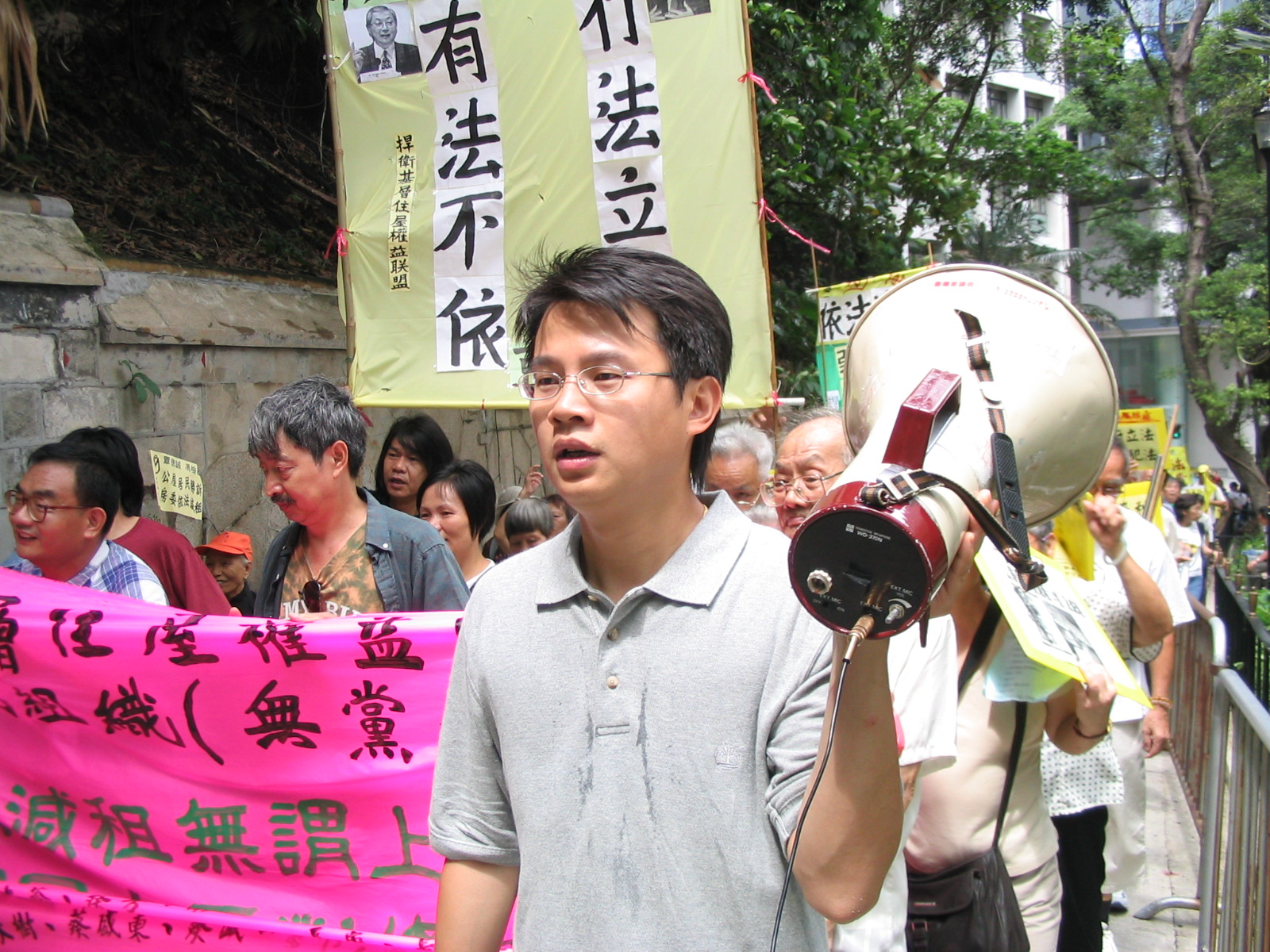
China2008 / 59min
Director:Tan Tan
One morning in Beijing, a group of young people in their early 20's are crammed in a flat in Tiantongyuan Community. They are just started their battle of the day, a battle of online games. Here is neither an internet café nor home to anyone of them. This place is a private studio that makes a profit by winning for others the golden coins and profits in computer games.
They don't know much about each other, and can't be bothered to know.
Their bosses are about the same age as them. For them, this is the place where they can make money while playing games without excuses. These young people work day and night in the virtual world; however in reality, their life couldn't be simpler. When it is time to eat, they eat take-away food in front of their computers and finish their dinner while playing games. After work or on weekends, the bosses just relax inside their rooms and play games, while the staff use their own account names to play games in an internet café for 2 to 3 days nonstop.
On the eve of Chinese New Year, the bosses had to go home, reluctantly, while most of their staff stayed in a dormitory. They just ate some dumplings which is one of the traditions for Chinese New Year, and they couldn't wait to go out – to celebrate Chinese New Year in an internet café. Tonight, most of the Chinese people reunite with their families, except these young people wandering between the high buildings across this large community. Everywhere else is festival with decorated windows, loud firecrackers and beautiful fireworks, but this has nothing to do with them, as if they don't belong to this world.
Half a year later, the studio had to close down due to plunge of coin prices and lack of regulation in their "market". The bosses transformed the studio into a dormitory and decided to continue renting the place until they all find a real job. As for the staff, some had gone home, while some stayed in Beijing to find other jobs and most of them try to work in other game studios - simply because in the real world, they feel at a loss, but in the game world, they are superheroes…
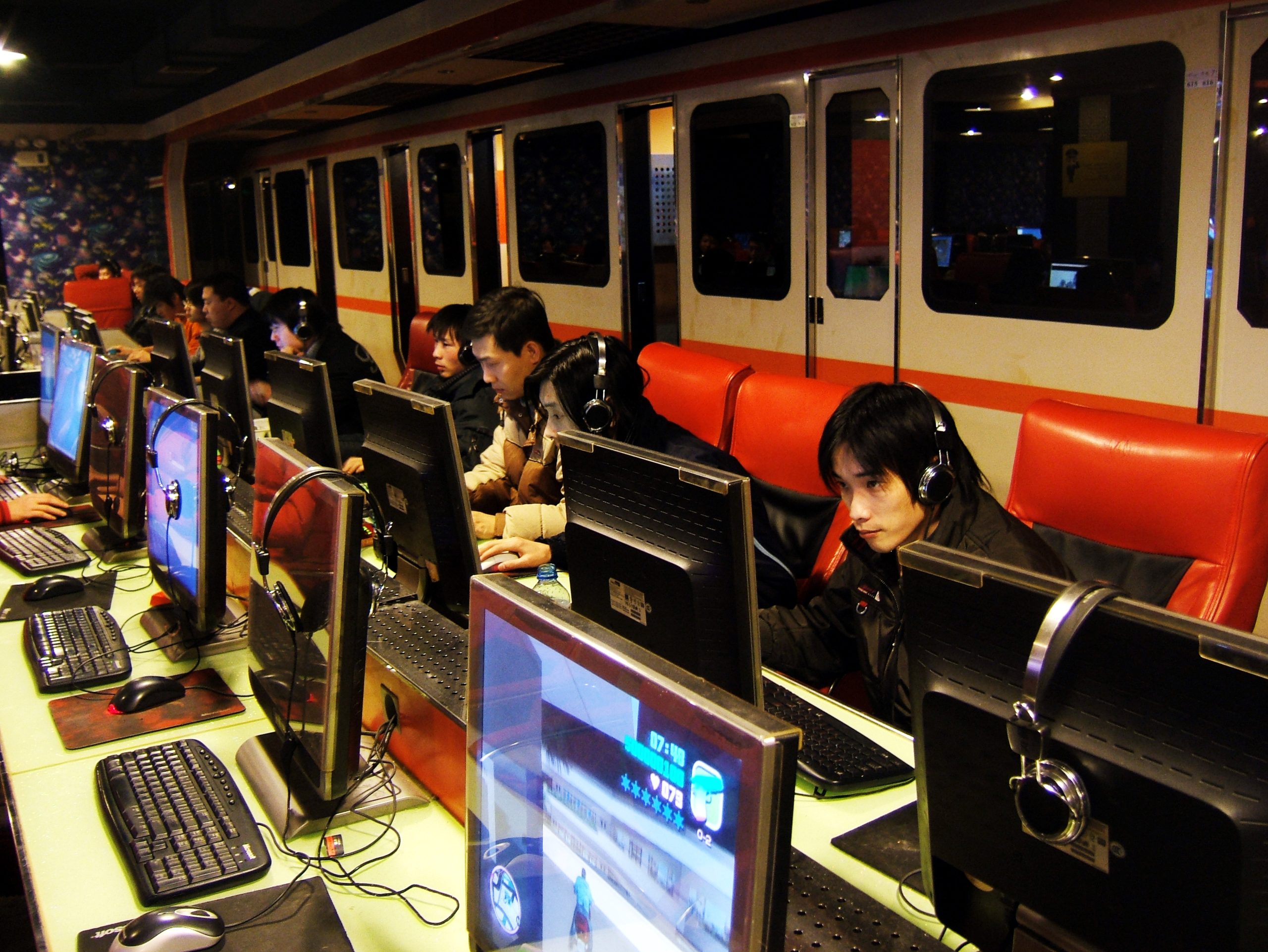
China2008 / 52min
Director:XU,Jun
The documentary is about a group of migrant workers in Shanghai and the camera is cast upon a group living in the work shed in a university, who come from the rural areas across China.
The documentary mainly focuses on the life of two groups of migrant workers. One group is mainly middle-aged migrant workers, who simply come and work to support their families. They live a rather monotonic life in the off-work hours and walking in the university hall and watching a performance by the university students would totally make their day. But as simply as this dream seems, it is almost beyond reach since they are often rejected by the guarding students for their identity and appearance. They cannot help but angrily questions these well-educated people "do you know it is us who built this hall?"This line often shut the people up.
Another protagonist in the documentary is WANG Bing. He is only 22 but he had make a living far away from his hometown. He holds drastically different values from those middle-aged workers and goes out shopping, drinking with his friends. He is just like those white-collar salary men, always pennyless soon after he gets his monthly pay. He has a girlfriend who shares the same work shed with him, which makes his fellow migrant worked all jealous about. But nobody knows how they are no longer in love, despite his efforts to please his girlfriend. In the end, his girlfriend left Shanghai and him, but before leaving, the girl confesses her love for WANG Bing, which had puzzled WANG Bing for a long time and eventually ends nowhere.
Money and love are the two main themes that can be found everywhere in the world. Shanghai the sleepless city, attracts many people with its splendid prosperity and extravagance, just like everyone's dreams; however, is there any superiority and inferiority between dreams? We always complain about the cruelty of life and are never satisfied with what we have today. Now, take a look at those so-called"migrant workers" who have left their hometown to work in other places. They seem to be telling us: live our life and be earnest and happy.

China2008 / 22min
Director:Guo Zi-dong
Huang cun, situated in the most beautiful county in China – Wuyuan. Though the village is like a haven of peace and happiness, Huang cun is rather isolated and lacks organized tourism development plan. Other hand, its neighboring village, Likeng, which is merely famous for a first Confucian school, seems to attract all the attention and obtains a noticeably different amount of tourists and the income from the tourists.
In fact, Huang cun has the same breath-taking landscape and the same elegant Huizhou style architecture. However, when people in Likeng started doing guided tours and opening up restaurants in their village, young people from Huang cun still had no choice but go working in big cities and leaving behind the elderly and children. Huang cun was also famous for its tea once, but that no longer brings in much income with the constantly plunge of tea price in the recent years. It is said that these years, the forest in the mountains was overexploited just so that people in Huang cuu can manage the minimum.
Mr. YU Duo-fu from Huang cun is more than 70 years old. He dreams to turn Huan cuu into a historical site like Lieng, and thereby improve the living conditions in the village, including renovating their heritage sites. So he volunteered to be the head of the village's tourism development committee. He heard that internet will get more people to know about his village, but only after he inquired their county tourism office, he realized that the advertisement commission for a year would cost a fortune. The following months, Mr YU Duo-fu disregarded the weather and went around highways connected to his village, with a paintbrush and some paint with him to write on walls "to Huang cun →". In the long holidays that followed, flocks of tourists surprisingly turned up in Huang cuu, because they saw the signposts.
It's been two years since then. The signposts YU painted are all weather beaten and some are even blocked by new buildings. One can just about to tell the vague attempt of the village's tourism business by the wooden signboard at the entrance of the village, saying "Admission Fee: 20 yuan each". Huang cun is too isolated and the bumpy roads just make it even more difficult for large vehicles, let along being inviting enough to any professional tourism planner to invest on infrastructure. YU Duo-fu now can only hopes that one day some rich man would come develop Huan cuu, like the way someone invested Likeng. He feels that only money can make things better.
To go to Huang cun from the county station, you need to make a transfer in Qinghua. Qinghua is where WU Dong-qing lives. WU Dong-qing is a teacher in a local middle school. He loves traveling and photography. He even single handedly set up a website about traveling information in Wuyuan and often answers questions from his online friends. After gaining some reputation on the internet, WU Dong-qing followed suggestions by his friends and opened a hostel just based on his own house. He named his hostel "post house" and aimed to make friends with local visitors and exchange travel experiences. Because of this, some tourists even gives up th opportunity of staying in better spots, just to come stay in his place in Qinghua.
Compared to Likeng, Huang cun does not have location, and neither financial resources; compared to WU Dong-qing, YU Duo-fu lack education and tools for communication. However, are they destined to lose?
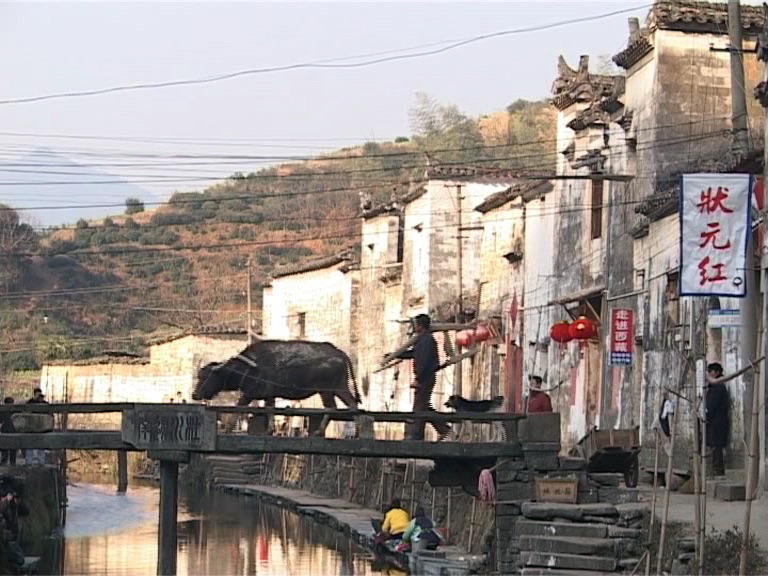
China2008 / 90min
Director:DONG, Jun
The DayuTemple was built in the Yuan dynasty and located northern of the ZhouyuanVillage, SudongTown, HangchengCity. The legend goes that during the regime by the emperors Yao and Shun, Dayu was assigned with the task of fighting against the flood in the Yellow River region. Dayu was so baffled yet devoted that he had not gone home for 13 years, even when he passed his doorway.
The old ferry port by the river Weihe has been there for years and plays a vital role for the nearby farmers transporting between one bank to the other of the river. However, the construction of the Sanmen Gorge Dam has totally changed the river Weihe to be suspended with sediments while forming an elevated river bed. People no longer see the wax and wane in the life along the river Weihe.
Villagers from Xinyu Village of Dali County chose to cultivate the land along the river bank and live in the areas raised higher above. It's been forty years since the Sanmen Gorge project was inaugurated. River banks along Yellow River are largely deserted, and the army entered the region aroused conflicts with local farmers, who just want to give their best shot for survival. Tongguan Fort is another place badly influenced by the Sanmen Gorge project. The ancient fort has disappeared as a result of the policy oversight by the government. The water level in the Sanmen reservoir would never have submerged Tongguan Fort, but it has been replaced by the Venice Hotel and Yellow River Fish Barbecue anyway, bringing even less visitors.
MA, Jian-wen is a folk poet from Fengdong Village of Huayin County. He received education up to only senior high school level and was resettled in Qinghai Province. In the 40 years in Qinghai, his senses of responsibility and independent thinking prompted him to accomplish several hundreds of poems, many of which are about the resettlement and life in exile. A trivial grass-root figure like him still insists on his dream to return to his hometown. Fighting against flood has always been the action front of Chinese politicians, and there are always more and more of such water conservancy projects to come. But today, do these political leaders see traps hidden behind the economical development?
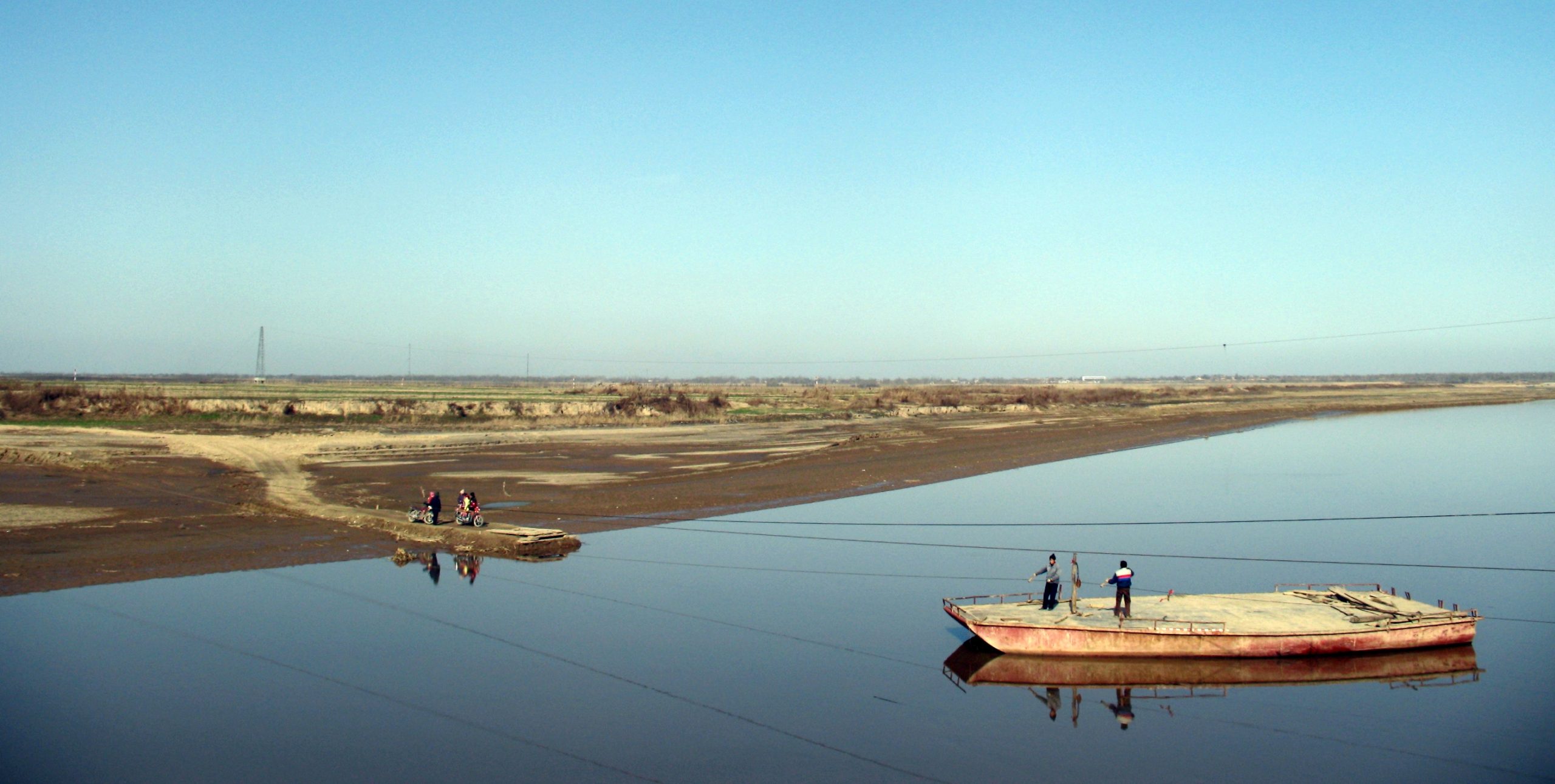
Taiwan & China2008 / 84mins
Director:LIN,Zhi-zhan
XIONG,Jie-feng is naive but not easily-influented. Different from other Chinese young people who prefer working in the cities, XIONG decided to go back to his hometown, Pingzhai Village in Yunnan Province, and started to plant the "Red Rice Seed," a kind of ancient species.
The so-called organic agriculture has had an age-old tradition in China. The skills have been passed from generation to generation. This is the major reason why farmers connect to the land both historically and emotionally. The "Red Rice Seed" can only be planted in a traditional and organic way. If the plantation was to succeed, the problems resulted from scientific fertilizers and the overuse of chemicals since the 20th century can all be resolved.
However, the "Red Rice Seed" can never be as easily planted and as richly harvested as the newer species. More and more farmers decided to use the new species, and that causes the extinction of the ancient species.
XIONG, who is simple-minded and straightforward, tries his best to overcome all the difficulties to plant the "Red Rice Seed". At the same time, finding a young woman willing to marry him seems even more difficult than plating the "Red Rice Seed" successfully...
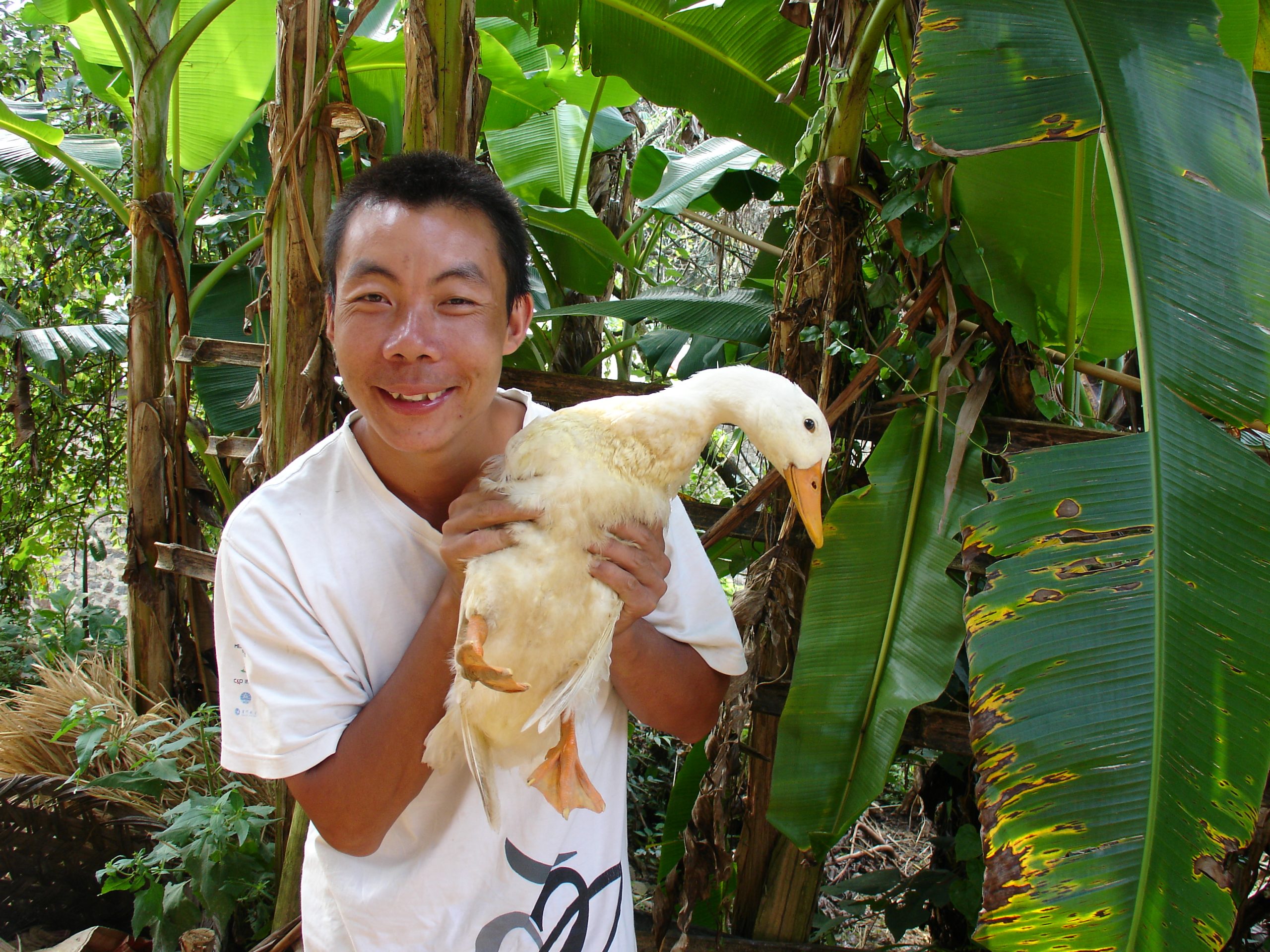
China2008 / 90min
Director:LI, Xiao-jiang
Ge Bu is a poet who came from the tribe of colorful clothes in the mountainous area. He stayed and taught there after graduated from middle school, and has since worked in various governmental positions. All along the way, he moved farther and farther away from the mountainous area, and the loneliness piled up in his mind just seems deeper and deeper, especially whenever he recites the tribal epics passed down from mouth to mouth. In 2007, the government transferred Ge Bu to his hometown and want him to convince the tribe to build a road connecting to the outside world for more interaction.
A-Ying, a singer, went blind at 18, when his eyes ached for 3 days. Being left with pure darkness and loneliness, A-Ying picked up his father's sanxian and self-learned to play the instrument of his ancestors, relying solely on his feelings and sensations. Since then, the sanxian is everywhere in his songs and music.
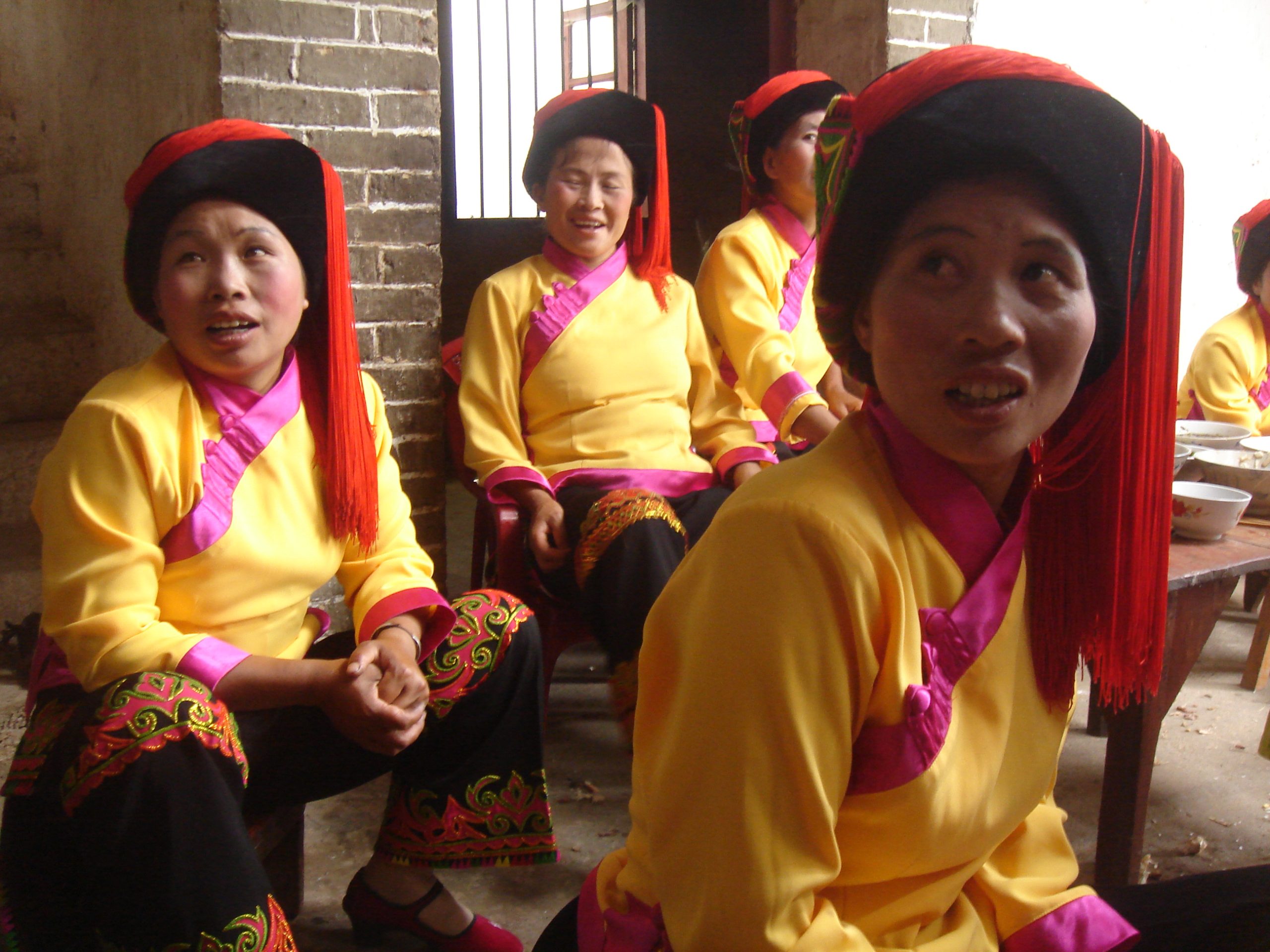
Taiwan2008 / 57min
Director:SU, Che-hsien
This is a documentary about two generations of hip-hop dancers.
"I'm 34 now and still dancing. Probably I won't stop until I win," said Alun. For him, hip-hop is his life, his oxygen. During the 90's, when Taiwan was just liberated from authoritarian, he formed the first Taiwanese hip-hop group, "The Party", and released two albums, even though he was subjected to vast pressure from the disagreeing eyes in the society. However, the group was somehow dismissed and the members simply went separate ways. Alun therefore went to Osaka, New York, Europe, Brazil and other places to explore different souls of the dance.
"He is totally nuts about hip-hop," as described by his students. For most people, no one understands what he really wants to say, let alone what he really thinks. This documentary records the period between 2007 and 2008 when Alun participated in the world break-dance contest in Paris. In order to cover his travel expenses, he even taught the basic amateur dances, just because – "I'm a dancer and if I had never tried for even just once, I would always regret it."
Another line of the story is about a dance group on the street of Taipei called "Eight Children", which was formed by a group of high school students. They are of the new generation born in the 90's and they are only about half of Alun's age. This new generation of hip-hop dancers doesn't have the pressure from the disagreeing eyes of the society, and in instead, they are fully sponsored by the praise and encouragement to a hip-hop culture.
"Eight Children" agreed one year ago that after this year's college entrance examination, they would come back and take part in the upcoming hip-hop competition. Will they have a happy ending? Or, who cares? Hip-hop needs not to be serious. All in all, just keep dancing!
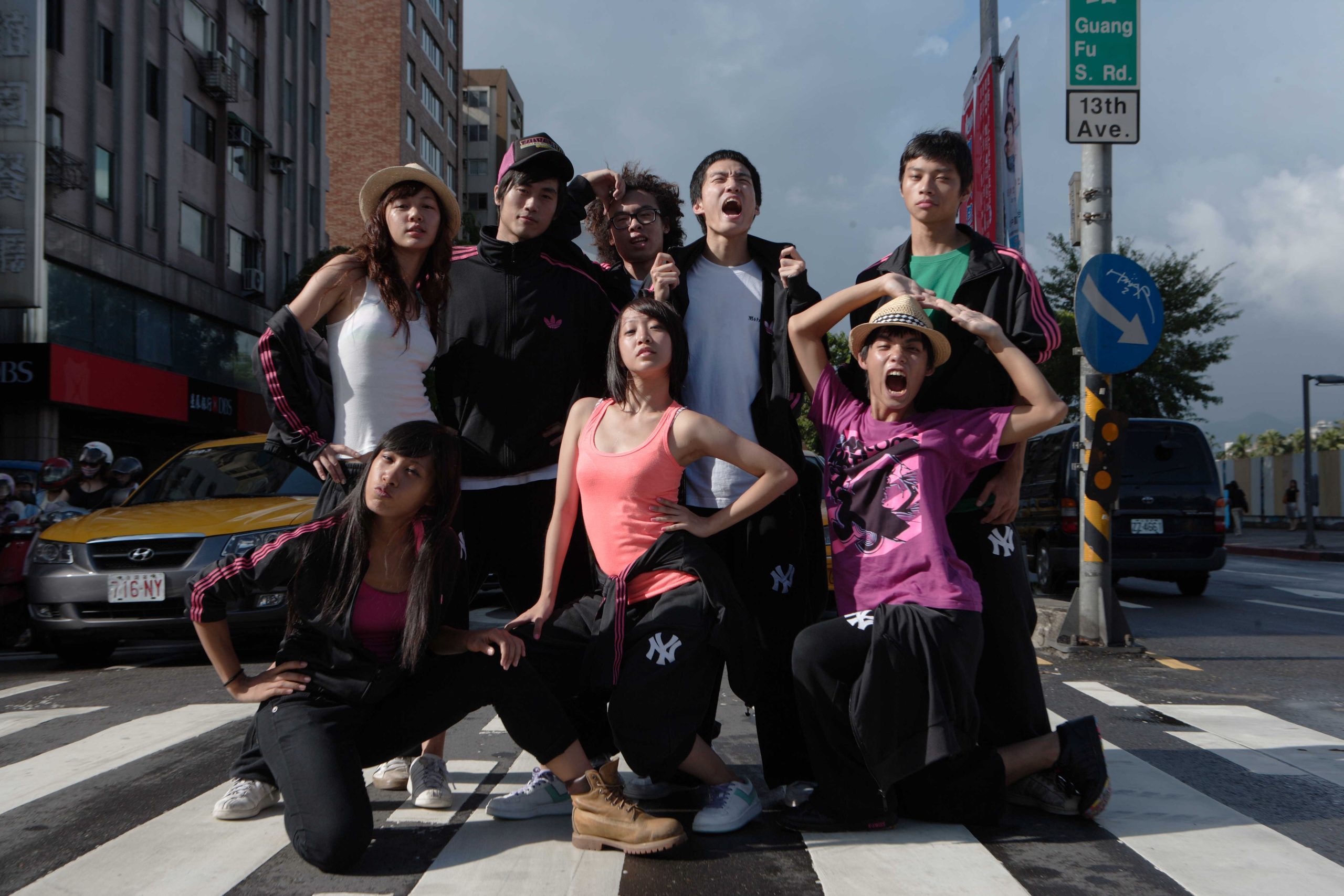
Hong Kong2008 / 93min
Director:CHEUNG, King-wai
KJ is a 17-year-old music prodigy from a well-to-do family, and lives an inexhaustible life provided by his doctor father. At the age of 11, he won his Best Pianist title at the Hong Kong Interscholastic Competition in Music and the opportunity to play Beethoven’s Concerto for Piano No. 1 with a professional orchestra in Czech.However, in the mind of the young talent, he began to question incessantly about his life, about “why piano?”, and “what is in life, if not music?”
There since, he who is turning 17 this year has not made much substantial achievements in terms of awards and performance opportunities, other than his temporary drop-out for two years. Sometimes, he is not happy ... tormented by reflections on a utilitarian reality and more.
This documentary goes deep down to one's mind: his thoughts, his struggles and his choices. It is a story of a genius, but also a story of everyone, lamenting over our unrecognized talents while brewing one's dream-come-true. Just as what we do in our daily life...
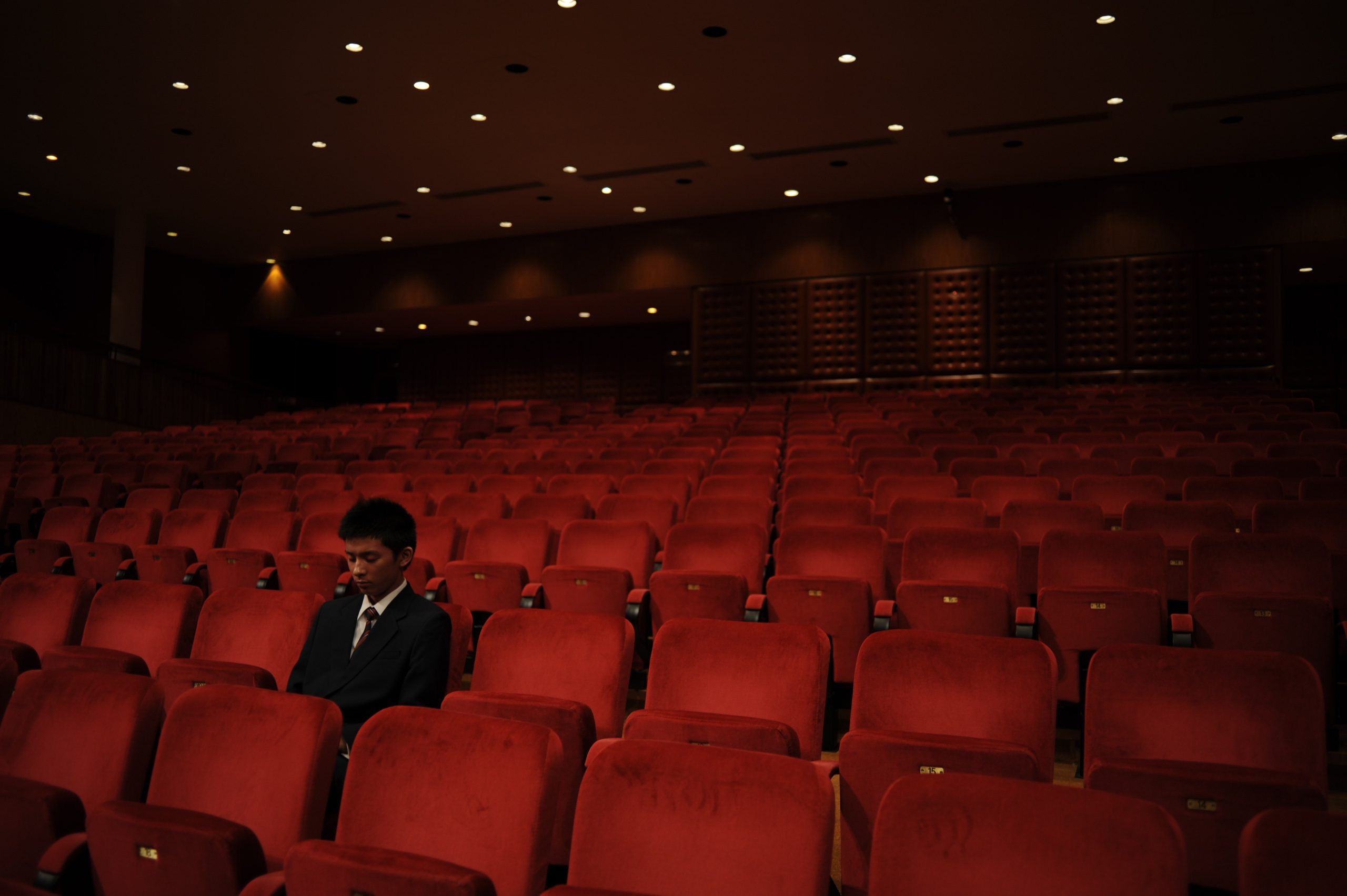
Contact Mail